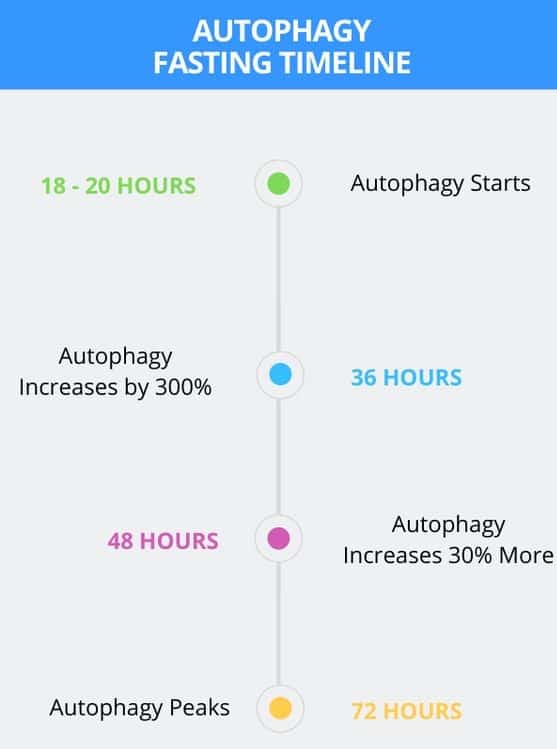Preparing children for their financial future is a key concern of many parents. A a follow-up to last month’s contribution focused on financial considerations for those between 15-24 years old, we wanted to continue that theme but focusing on what parents can do for their children who are even younger.
Paying Allowance:
Determining How Much
Before determining how much to pay, it’s worth coming up with a plan for how the money is earned in order to manage your child’s expectations.
While using a paid chore system can teach kids responsibility and the value of earning money from doing work (i.e. $7 for mowing the lawn), some families may view chores as a communal effort that are shared among all members of the household.
Either way, when it comes to determining how much weekly allowance to pay, it’s really up to you. However, it’s not uncommon to pay somewhere in the range of $1-$2 for each year of the child’s age. So, by this measure, a 12-year-old would get an allowance ranging somewhere between $12 to $24 per week. For reference, according to RoosterMoney, the average weekly allowance that parents pay is $19.30.
For a teenager, if encouraging them to buy their own clothes and pay for most of their own activities, a weekly allowance could certainly be in the range of $25 per week or more.
Be consistent
Regardless of whether allowance is tied to chores or not, many experts recommend making at least a portion of a child’s allowance fixed (regardless of their chore completion or behavior) and paying it consistently on the same set date – whether weekly, biweekly, or monthly.
Avoid the temptation of caving in and paying allowance early as allowance is supposed to teach kids good saving/spending habits. These lessons are hard but better to learn when young than to become a future payday loan borrower!
Help them set goals
As parents, we play a major role in helping our children learn self-control and the value of delayed gratification (some may be familiar with the Stanford Marshmallow Test).
By giving our children more agency in the spending/saving of their money they can learn the value of skipping short-term wants in exchange for longer-term goals.
One way to structure this could be to require kids to put a portion of their allowance into long-term savings/goals, a portion toward a charity/cause they care about, and to keep the remaining available for immediate spending.
Banking + debit cards
Opening a high yield savings account for your child’s “longer-term savings” – and/or setting up a separate savings account for any specific goals they might have – is a great way to introduce them to online banking and showing them the interest (however miniscule) that accumulates.
Additionally, some parents preparing their children for their financial future will appreciate the prepaid debit cards and online platforms that help make managing allowances a bit easier. Some options include Greenlight, Copper, and GoHenry.
Protecting their identity/credit:
Freeze your child’s credit
While preparing your children for their financial future, ensure that their finances don’t get derailed by no fault of their own. By freezing your child’s credit you prevent criminals from opening lines of credit using your child’s personal data (which can be a maddingly laborious process to unwind). Each of the three credit bureaus will require copies of the following:
- Parent’s driver’s license / government ID
- Parent’s birth certificate
- Parent’s Social Security card
- Child’s birth certificate
- Child’s Social Security card
- A utility bill or bank insurance statement with parent’s name/address on it
Note that all three credit bureaus have different forms to process credit freezes for a minor. Equifax has this form, TransUnion has this form, and Experian has this online form that prints to PDF (select “add or remove a security freeze for a minor”).
Protect Social Security numbers
Whenever prompted to provide your child’s SSN, leave this field blank unless you are explicitly required to provide it and understand a) why it’s necessary and b) how it will be protected.
Pay attention to mail
Credit preapproval offers in your child’s name are always worth investigating. Receiving any correspondence from a collection agency addressed to your child is a major red flag.
Keep your child’s documents locked away
Important documents like birth certificates and Social Security cards should be stored in a home fireproof safe – never in your purse, wallet, or car.
Monitor health insurance claim information
A health insurance claim that lists your child’s name but never actually happened can indicate that your child’s personal information has been used to access health insurance benefits.
Investing
For Education: 529 Accounts
When it comes to your children’s education saving, 529s are a reliable, tax-advantaged saving vehicles. From a tax standpoint, 529s grow tax-deferred and withdrawals are tax-free so long as they’re used for qualified education expenses.
While originally limited to post-secondary education costs, you can now take tax-free withdrawals from 529s to pay for apprenticeship programs as well as up to $10,000 per year of K-12 private education.
When it comes to choosing a 529 plan, it’s good to know whether your state offers a state tax deduction for 529 contributions. If so, there may be benefits to using one of your state’s designated 529 plans. However, if your state does not offer a tax deduction for 529 contributions, feel free to use any 529 plan but consider plans like My529 that are affordable and provide access to low-fee, quality index funds (both Vanguard and Dimensional Funds).
For Long-term Growth: UTMAs/UGMAs and Roth IRAs
UTMAs/UGMAs:
These are custodial brokerage accounts that parents can set up for their minor children. Deciding which to open can depend on the state you live in but both are great accounts to begin improving your child’s financial/investment literacy while also saving and investing for the future. Parents commonly use these accounts to give their children a head start in saving for a wedding, a down payment on their first home, or to just get a base of money to begin compounding for the long-term.
Parents should be aware that while they may be the ones funding these accounts, the transfers into the accounts are irrevocable – that is, the money becomes official property of the minor once transferred-in. Upon the minor turning 18 (or 21 in some states), they will reach the age of majority and be able to use the funds at their discretion.
One planning opportunity for parents with low basis stock positions is to “gift” the low basis shares to the minor child’s UTMA/UGMA. In doing this – and beware of the many variables that can change the mechanics of this [CONSULT WITH YOUR TAX ADVISOR] there can be opportunities to sell the position in the minor’s account, thus recognizing the gain at the minor’s lower/nonexistent capital gains rate.
Roth IRAs:
For children that have earned income but are still in the lowest tax brackets, contributing to a Roth IRA sets the table for potentially decades of tax-free compounding.
For parents that are also business owners, it may behoove them to put children on payroll, assuming there is a real business need and that the pay is commensurate with the work/time.
Parents that can hire their children are able to a) lower their reported income (thereby reducing self-employment/income taxes) and b) provide the child with “earned income” which can go towards their annual Roth IRA contribution. Again – consult with your tax advisor!
DISCLAIMER TO PARENTS Get Your Own Sh*t In Order, FIRST!
As much as we love our children, we mustn’t forget to put our own oxygen masks on first.
Emergency Fund
Having a child naturally increases the odds of having some unplanned expenses. Additionally, the mere fact that you’re now financially responsible for someone beyond yourself raises the stakes for “rainy day” planning. As such, having an emergency war chest to keep things running smoothly in the event of job loss, illness, or a large unexpected expense is crucial.
Generally, when it comes to emergency funds, we suggest keeping three to six months’ worth of essential living expenses readily available in a high yield savings account (Marcus, AMEX, and CapitalOne all offer competitive APYs).
Education Planning vs. Retirement
If you’re torn on whether to invest for your child’s college or your own retirement, more often than not: choose retirement. Children can borrow money to get a college education, you cannot borrow to fund your retirement.
We all want to provide our children with the best education money can buy, but be wary of placing too much investment in this area if it means you’ll be neglecting your own future (in which case you’ll be the financial burden to them later on!).
With college education costs continuing to outpace inflation, it behooves nearly all parents to consider meeting with a college planning expert to navigate the nuances so that parents (and their children!) can get the most for their money.
Insurance:
Health Insurance:
Be aware of your plan’s family deductibles (especially if in a high deductible health plan [HDHP]) so that hospital bills don’t leave you in a financial bind.
Life Insurance:
Having a sufficient amount of term life insurance can go a long way in helping a family stay afloat if one parent dies while the children are still too young to provide for themselves. Life insurance death benefits are tax-free and can create breathing room for a widow(er) to figure out the best next steps for the family. This could include taking unpaid time away from work, paying off the mortgage, funding the kids’ tuition/childcare, or any other obligation that the deceased spouse can no longer help with.
Disability Insurance:
While parents may have employer-provided disability insurance, we recommend making sure that it’s sufficient coverage to pay for essential expenses like your mortgage, debt, childcare, and household expenses. Separately, it is always worth considering getting a private/individual policy to supplement any existing coverage that is customized to your needs and “portable” should you leave your current employer. Keep in mind that some policies may pay benefits only if you can’t perform any work at all. If you have a high paying job that requires specific skills, consider an “own occupation” policy.
Maximize Available Tax Credits:
Unlike the Child Tax Credit (CTC) which is picked up on nearly all tax planning software, the Child and Dependent Care Tax Credit is one that is regularly missed as it requires parents to report care expenses. Most parents that pay for childcare while working (or looking for work) can claim this credit.
To qualify, children must be under the age of 13 and parents must report expenses paid for babysitting, daycare, preschool, summer camps, and even nannying arrangements.
Families are eligible to receive up to $8,000 in credits depending on the number of children and household adjusted gross income (AGI). Be aware, parents are required to provide their caregiver’s name, tax identification information (i.e. Tax ID or SSN), and the amount of expenses.
Estate Planning
When it comes to drafting a will, one of the most important parts is selecting who you would like to serve as guardian to your children. Have a conversation with an attorney to make sure other parts of your estate plan are in order (powers of attorney for financial and health care decisions) and be sure to keep beneficiary designations up to date (note: beneficiary designations supersede your will!). Your attorney can help you determine if setting up a trust makes sense for your situation and goals.
Final Thoughts
The last thing we will ever attempt to do is tell someone how to raise their children. We know our lane and parenting advice is not it. Ultimately, though, all parents want the best for their children – kids that are confident, kind, and successful.
When it comes to parenting – regardless of the topic – a common refrain suggests that it’s most important to model the behavior you want your child to exhibit. Preparing children for their financial future begins with you, the parent. By getting your own financial affairs in order, you can speak more confidently/transparently about household finances and raise financially intelligent children that feel empowered to take on the world.
With the cost of raising a child from 0-18 continuing to climb (now up to over $300k), the fewer missteps the better.





